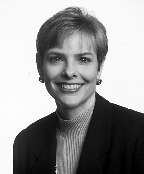 A nurse practitioner specializing in medical oncology told nurses and nursing faculty this week that changes in the next five to 20 years will revolutionize the way health providers think about and manage cancer diagnosis and treatment. As a result, nurses will need an improved understanding of basic sciences such as cell biology, she said.
A nurse practitioner specializing in medical oncology told nurses and nursing faculty this week that changes in the next five to 20 years will revolutionize the way health providers think about and manage cancer diagnosis and treatment. As a result, nurses will need an improved understanding of basic sciences such as cell biology, she said.
“We all must have some baseline competency in the basic sciences,” said Paula Rieger, director of international affairs for the American Society of Clinical Oncology in Alexandria, Va. “Even if in the future no more chemotherapy was needed, oncology nurses would still be using their skills in new and different ways.”
Rieger made presentations March 3 and 4, on campus and in the community. She is the 12th visiting nurse scholar at the UNMC College of Nursing and NHS.
“Cusp of incredible change”
Rieger has more than 20 years of experience in the field of cancer, specializes in biotherapy and cancer genetics. She has worked in the Clinical Cancer Genetics Program at the University of Texas M.D. Anderson Cancer Center in Houston and served as president of the Oncology Nursing Society from 2000 to 2002.
“This is one of the most incredible times,” Rieger said. “We stand on the cusp of incredible change. The Human Genome project is one of the most exciting projects undertaken in history.”
She spoke about the evolving world of genetics as it applies to health and cancer, how knowledge about the human gene and evolving technologies is being used to design new ways of preventing and treating cancer.
Treatment methods, genetic testing
“We’re going to see a very different way of treating cancers,” Rieger said. “Historically, we’ve tended to treat peoples’ cancer the same. In the future, we will use molecular profiling to analyze each person’s cancer, which will reveal more information about prognosis and how we can tailor treatments to best affect a successful outcome. We’re just beginning to understand how this might work.”
She also spoke about the controversial issue of genetic testing. Individuals who may consider getting tested include: those with a strong family history of cancer with several relatives affected in a single lineage, clustering of like cancers, and onset of disease at ages earlier than usual. “The debate about genetic testing is still in flux,” Rieger said.
About Rieger
Rieger has made more than 150 national and international presentations at scientific and professional meetings on biotherapy, cancer genetics, symptom management, and other cancer related topics. She has authored more than 60 manuscripts, books and monographs on the topics of genetics, cancer and biotherapy, and served as a consultant in the production of numerous educational videotapes for patients and healthcare professionals.
She received her master of science in nursing degree from the University of Texas Health Science Center in Houston after receiving her bachelor of science in nursing degree from the University of California, Los Angeles. She also has a bachelor of science in biology and has completed a postmaster’s nurse practitioner program at the University of Texas Health Science Center.